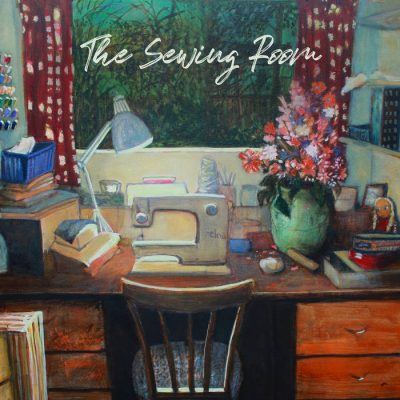
Nomadic spirit Laura Reznek has already been on the road many times in her musical career, crossing the Atlantic and roaming the UK and mainland Europe. The Canadian-born singer-songwriter’s third album feels like a moment taken to pause, to hold still after being in motion for so long and reflect on the past years.
As a multi-instrumentalist with a DIY touch, Reznek produced most of The Sewing Room solo, with the help of some good friends: cellist Sam Rowe arranged strings, with Daniel Baxter on guitar, Martin Newburn on drums and Danny Cross on bass and album mixing.
Influenced musically by Reznek’s heroes Nick Drake and Judee Sill, the album is rich in storytelling, many of the songs reflecting on events and threads of memory. The multilayered vocal lines give the impression of various parts of Reznek’s mind chiming in on the reflection, remembering things differently, trying to figure out which version is true and how to react.
Reznek’s beautiful voice cycles through melancholy, vulnerability, defiance, frustration and hope. The tracks on The Sewing Room focus on grief and how it brings life into sharp focus, a human experience that cannot be sorted into neat boxes.
Each song explores its own pocket of loss: the warm piano chords of ‘Yacht Rock’ contrast with the themes of frustration and fury at life’s injustices; ‘Spades’ reflects on childhood struggles, Reznek’s younger self unaware of the real struggles yet to come, ending the track in a forlorn whisper; ‘Golden Child’, ‘Pool Shark’, and ‘Physical Education’ shift the spotlight to the impact of investing emotions in people who take but do not give, who are dishonest and sap our self-esteem.
In ‘Lost On Me’ and ‘Endeavours’, the singer focuses on relationships that crumbled, trying to pinpoint where things went wrong and how to move forward from the break-up; ‘The Centre’ similarly homes in on broken relationships and the shadows thrown by certain family ties, Reznek’s frustration reflected in the hard drum and electric guitar lines; ‘Exit Plan’ feels even more intimate, infused with a kind of yearning, perhaps remembering the loss of a loved one, someone the singer wishes they could have helped.
The closing track ‘Grit’ makes wonderful use of language, playing with the sound of words to portray someone stuck in a rut, gritting their teeth to get through each day, always in motion with the rhythm of the lyrics and needing a change to heal.
Though The Sewing Room has a definite air of melancholy about it, the musical backing is often uplifting, the tracks rolling on with the energy of the drumbeat – perhaps indicative of the spark of joy we can find in life when we are confronted with grief and a call from Reznek to set this grief aside and look to the future, to live.
